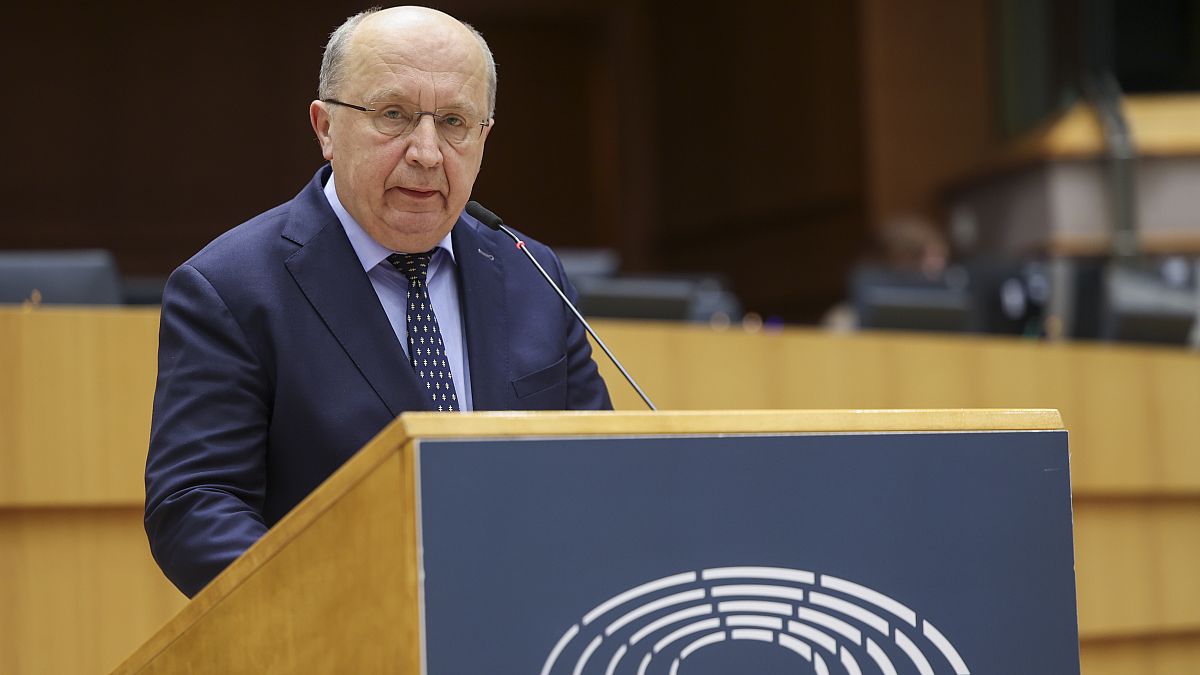Andrius Kubilius, a Lithuanian commissioner hopeful, is looking to raise billions of euros for building up the military and boosting competitiveness in the European Union. He is open to the idea of joint borrowing or using unspent money from post-pandemic funds to finance these initiatives. Despite the potential increase in funding for defence in the next seven-year budget framework, Kubilius believes waiting until 2028 is not a viable option. He is exploring various possibilities to raise additional finance quickly, including redirecting unspent money from the EU’s Recovery Fund, using the European Stability Mechanism, or mobilising finance from the European Investment Bank and private institutions.
Mario Draghi has also suggested issuing joint EU bonds to raise the additional funds needed for the EU to remain competitive. However, the eventual solution will need to be agreed upon with member states, some of which, like Germany and the Netherlands, have strongly rejected the idea of joint borrowing. Analysts have raised concerns about a potential overlap with the work of Estonia’s Kaja Kallas, who will succeed Josep Borrell as the EU’s top diplomat. While the role of a defence commissioner is different from that of a defence minister at the national level, Kubilius will need to coordinate with Kallas and focus on economic areas like investment, procurement, and research.
Von der Leyen has tasked Kubilius with stimulating public and private investment in defence, designing a European air defence shield, boosting military mobility, and creating a single market for the defence and space industries. Kubilius believes that the EU can play a supportive role in helping member states and NATO by raising additional resources for defence. Once the new Commission is in place, one of Kubilius’ first missions will be to present a defence paper with Kallas to explore opportunities for collective investment. Ultimately, the goal is to strengthen the EU’s military capabilities and competitiveness in the global arena.
In his role as the EU’s first defence and space commissioner, Andrius Kubilius is focused on finding innovative ways to raise the necessary funds for military development. He is advocating for joint borrowing and the use of unspent money from post-pandemic funds to quickly build up the military and enhance competitiveness. Despite the potential funding increase in the next budget framework, Kubilius believes that waiting until 2028 is not feasible, hence the urgency to explore alternative financing options such as redirecting unspent funds from the EU’s Recovery Fund or mobilising finance from various institutions.
Mario Draghi’s suggestion of issuing joint EU bonds to raise additional funds has also been considered as a potential solution to the funding gap. However, reaching an agreement with member states, some of which have rejected the idea of joint borrowing, remains a challenge. Coordination with Estonia’s Kaja Kallas, who will be taking on the role of the EU’s top diplomat, is essential to ensure effective cooperation and avoid overlaps in responsibilities. Kubilius is focused on working with Kallas to stimulate investment in defence, enhance military capabilities, and create a unified market for the defence and space industries.
Von der Leyen’s vision for Kubilius includes stimulating both public and private investment in defence, designing a European air defence shield, and enhancing military mobility. By focusing on economic areas like investment and procurement, Kubilius aims to contribute to the overall goal of improving the EU’s defence capabilities. With the support of the new Commission, Kubilius plans to present a defence paper with Kallas to explore opportunities for collective investment and strengthen the EU’s position in the global defence and space industries. Overall, Kubilius is dedicated to finding innovative solutions to raise the necessary funds for military development and enhance the EU’s competitiveness on the global stage.










